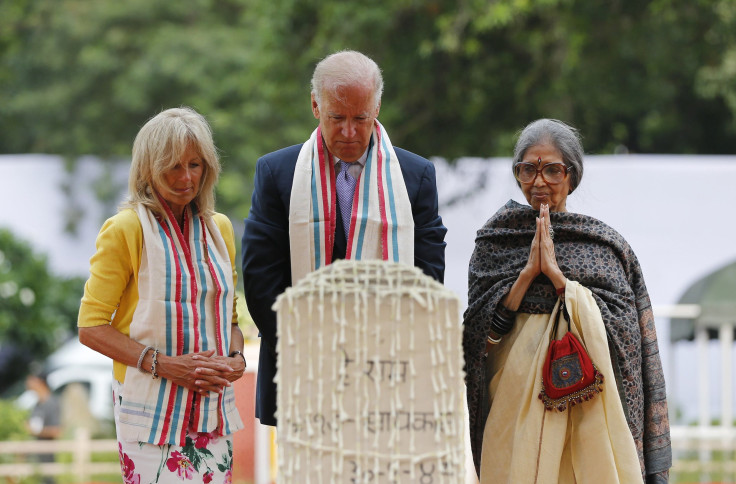India Could Set Preconditions For Investment Treaty With US During Vice President Joe Biden’s Visit, While US Businesses Cry Foul Over India’s Policies

India spelt out preconditions for a bilateral investment treaty with the U.S., asserting that the Indian judiciary would be the final authority in disputes involving American businesses, who would not be allowed to invoke sovereign guarantees, underlining the Indian government’s cautious approach in forging closer ties with the U.S., the Economic Times reported, citing senior officials.
India’s move comes at a time when the U.S. business community has urged Vice President Joe Biden, who began his four-day visit to India on Monday, to push the Indian government to scrap a set of policies, which they say is discriminatory against U.S. enterprises.
India first indicated willingness to launch negotiations for an investment treaty with the U.S. during a visit by a high-level Indian delegation, led by the country's finance minister, to the U.S. earlier this month.
India’s commerce and industry minister, Anand Sharma, said at the time that India is in the process of reviewing a draft investment agreement with the U.S. to eliminate gray areas, and to prevent potential disputes between investors and the government. He added that the proposal would be ready in a few months, following which the two sides could resume negotiations.
Meanwhile, the U.S. business community, in a letter to Biden on Monday, voiced its frustration over doing business in India, saying problems they face in the country “are systemic, going far beyond any one industry sector.”
“In the manufacturing, agriculture, telecommunications, biopharmaceutical, solar energy, entertainment, semiconductor, and other sectors, many companies face measures that are discriminatory, unfair, and/or inconsistent with international norms,” according to a letter signed by more than 40 U.S. industry groups, including the U.S. Chamber of Commerce and the National Association of Manufacturers, according to Reuters.
Biden will meet with Prime Minister Manmohan Singh, President Pranab Mukherjee and Vice President Hamid Ansari in New Delhi on Tuesday. Singh is expected to carry forward the treaty discussions when he visits the U.S. in September.
Biden praised India’s recent decision to relax rules on foreign direct investment, or FDI, across a dozen sectors, as part of the government’s campaign to close the deficit gap and help a rapidly weakening rupee. However, rules in key sectors such as defense and insurance, which are of particular interest to the U.S., remain hazy and are subject to final approval by the defense ministry and the parliament respectively.
In a report published on July 18, the U.S. Chamber of Commerce's Global Intellectual Property Center, or GIPC, called India an “outlier” in the international community due to deteriorating intellectual property rights in the country as a result of recent policy, regulatory, and legal decisions made by Indian authorities.
GIPC said India fared behind other emerging nations such as Brazil, Russia and China -- part of the BRIC bloc of countries -- in attracting foreign investment since the 1980s, adding: “If India were to strengthen its intellectual property regime and increase its score on the GIPC IP Index by 14.9%, it could reach the level of FDI similar to its BRIC counterparts.”
© Copyright IBTimes 2024. All rights reserved.












